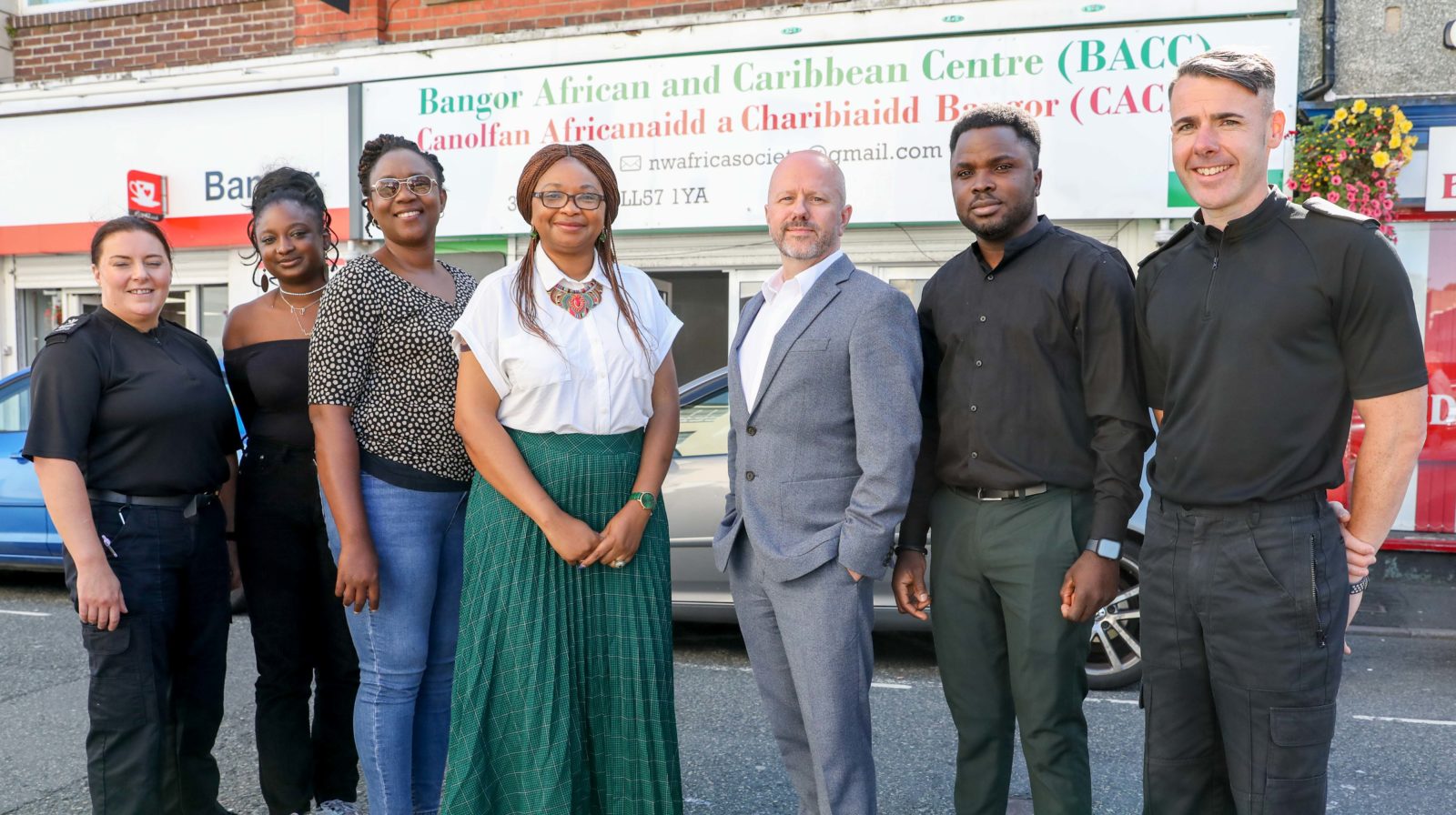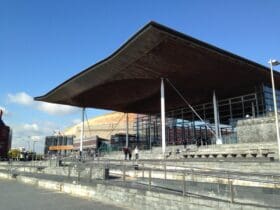Highly qualified students from Africa and the Caribbean are struggling to find university accommodation in North Wales because of racism, according to a leading charity.
The Bangor-based North Wales Africa Society which has worked with hundreds of immigrant African and West Indian people, says that racism remains an issue for migrants, many of them coming to the region to study for post-graduate qualifications.
The Society, which was established in 2018, is extending its programme of support for three years after winning grants of over £100,000 from organisations like the Big Lottery Fund.
But it was a smaller grant of £2,000 from the North Wales Police and Community Trust that helped set it on its way, according to Society chair Dr Salamatu Fada, a conservation expert from Nigeria now living in Bangor.
She said: “This grant and one from the Douglas Pennant Family Foundation enabled us to keep going and rent Bangor High Street and provide facilities there after we initially set up with help from Comic Relief and the charity BAWSO which provides specialist services for black and minority communities.
“We’ve now won funding for the next three years but without the follow-up support we were given by those initial grants we wouldn’t have been able to become established or just start staffing the property.”
PACT Chairman Ashley Rogers visited the Bangor base and said: “It’s a pleasure to see that PACT funding has made such a difference to the North Wales Africa Society during a crucial period in their development.
“Through their activities which are open to all members of the community, the Society aims to celebrate both Welsh and African cultures, leading to increased understanding and greater community cohesion.
“Our PACT funding has supported improving health outcomes and reducing isolation, making for safer and more sustainable communities across North Wales.”
The Society, founded in 2018, opened on the High Street on International Africa Day, May 25, in 2021, and has extended its range of services which are run by its project officers and include Welsh language lessons, advice on finances, environmental studies, children’s activities, a Carnival event and even help to buy African and West Indian food.
Much of their work is centred on helping students and their families arriving from countries across Africa find suitable accommodation and assimilate to life in North Wales.
Dr Fava said: “The grant from PACT was very timely to sustain the Centre and allow it to become established. We would have closed without it.
“We now run a wide range services and are involved in a beach clean and other environmental activities to help bridge the gap between the people arriving here and the local community.
“But housing poses a real problem with as many as six in a family looking for a house and I am struggling to find them a room overnight and this becomes a flood in September when the university year starts.
“Housing and finding jobs are the major issues and finding work is made more difficult because so many of the people are very well qualified but obviously can’t speak Welsh.
“In terms of housing racism is an issue – I found that when I came here in 2011 and was looking for accommodation when some landlords see you are black, they don’t even want to give you a viewing and I had the money for six months’ rent.
“Unfortunately when it comes to housing black people tend to suffer. Often there are plenty of empty houses and there are still people who can’t find accommodation – we need to appeal to landlords.
“We need longer term support for our community which addresses some of the underlying causes of race inequality.
“It will enable us to advocate in cases where people have been left behind or out of the system, or when they have felt disempowered to act, or have not understood the requests for information from the authorities.
“There is a need to address institutional and structural racism by increasing understanding of the BAME (black, Asian and minority ethnic) community and their needs and by raising their profile through shared cultural and other events and this project will do this.”
Inspector Arwel Hughes, of North Wales Police, based in Bangor, said: “There is a wealth of good work being done at the centre which is a constant hub of activity brimming with new initiatives.
“It’s difficult to imagine a time when the centre wasn’t here and when this resource wasn’t available.
“There is always a warm welcome to be had at the centre and my officers will often call by when passing.
“In addition to providing pragmatic support the centre is also a great place for us to meet new members of the community.
“Not everybody who attends the centre has had a positive experience with police officers and may carry their views with them from their own countries so this is an opportune time to break down any barriers that may exist and learn about each other’s cultures.”
The North Wales Africa Society is just one of many that have been supported by PACT, an independent charity launched in 1998 to support community initiatives, particularly those in which the police are involved.
In that time it has helped over 2,500 projects, investing over £1.6 million in communities across North Wales.
Ashley Rogers added: “For many who are involved in the projects, this is their first interaction with the police, so making this a positive experience can have profound consequences on their future life choices.
“From Gwynedd in the west across to Flintshire and Wrexham in the east, PACT continues to support projects that enable positive and sustainable community development and this has never been more important than right now as we transition from the Covid-19 pandemic into a very challenging economic situation.”








Leave a Reply
View Comments